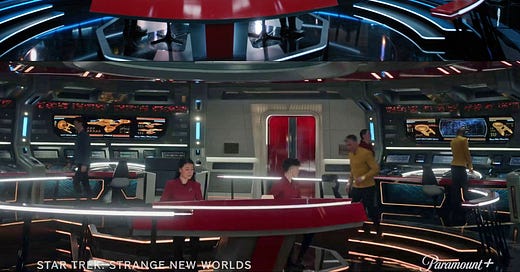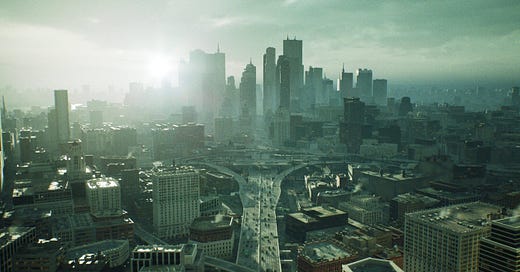SF/F Review – The Obelisk Gate
The Obelisk Gate, by N.K. Jemisin
Synopsis: In the second book in the Broken Earth trilogy, Essun and her daughter Nassun explore and grow into the fullness of their powers, while surviving in a currently-unfolding apocalypse.
Book Review: Last year when I read the start of this trilogy, The Fifth Season (review, discussion), I was blown away. Easily one of the best books of 2015, and plenty of readers agreed with me, as it won the Hugo Award for Best Novel.
Jemisin returns in strong from in this continuation, which picks up literally minutes after the first novel ended. It is a good companion, for a number of reasons.
First, it has a rational flavor. I would not call it RatFic, per se. But one of the major components of Rational Fiction is characters who explore the underlying rules of the world they are in, in order to munchkin their way into power. A lot of the focus of Obelisk Gate is the exploring and uncovering of how this magic system works, and exploiting it, and that really reminded me of RatFic. :)
The opposing sides continue to be relate-able, Jemisin puts a fair bit of work into making you understand how the various factions came to the place they are in and sympathizing with them.
It also stays in "grim" territory, which I really enjoy. There's one scene in particular, which should make everyone cheer when it happens, and which strikes a blow against our ideals, that will stay with me a long time. This scene helped to cement in my mind the difference between "grimdark" and "traditional" fantasy. I think that in most fantasy, the heroes win because of their virtue. They are better people, and because of that they succeed. In grimdark people succeed or fail purely on their ability to impose their will on others. We want the heroes to win because they are better people. But the REASON they win is because they are better at violence then their opposition. It can be tricky to demonstrate the difference between the two if you are an author, because in both cases the heroes are better people than the antagonists, and in both cases they win by prevailing in a violent conflict. Jemisin performs this feat spectacularly, and still wins our hearts even when it's clear our hero is simply better at killing and willing to use that to further her own goals.
Obelisk Gate does have the problem of being a middle book. (I continue to hold that authors should simply stop writing the middle book in a trilogy!) Which means it seems to tread water a lot, and much of the action within doesn't feel that important. Middle books always feel like a long diversion that give you more info and some development without impacting anything of major significance.
This is significantly offset by the Nassun storyline. Nassun was briefly mentioned in The Fifth Season, but in The Obelisk Gate she becomes a secondary protagonist and we're in her POV for aprox half the pages as we're taken through her story. This means the book is one-half a "middle book" focusing on Essun, and one-half a "first book" for Nassun. This REALLY does a lot to make it a better novel! Having a first book folded into the middle book is a great idea, and if you're going to write a middle book, this is one way to do it much better.
Another way is to be N.K. Jemisin. She is easily one of the best fantasy authors of our time, and it shows. There is one thing that bugged me personally, but it's very spoilerific so I'll save that for a future post. Despite this mystery complaint, the craft is beautiful, the characters are compelling, and the world that is slowly revealed to us as the book progresses is enthralling.
Highly Recommended.
Book Club Review: This novel produced TONS of discussion. There's simply so much in here! I don't want to go over everything, as that would simply take too long. The themes of human rights vs existential risk from the first book are still very present. Since they're in the middle of an apocalypse there's a bit of lifeboat ethics that comes up, but more interesting is the idea of who gets to decide how they're implemented. And the themes of abuse are much stronger than they were in the first book, which sparked a lot of discussion about conditional vs unconditional love, and the biological realities of how you feel about children/parents, regardless of how they have treated you. To say it was interesting would be a hell of an understatement.
All this is because Jemisin obviously has a lot to say. Her society is brimming with rich concepts that must be on her mind often. Someone who doesn't submerge themselves in these sorts of musings (and I'm assuming conversations/arguments) frequently simply wouldn't have a world with such deep roots. They are as irremovable from the author's work as they are from the author's mind. And this works exceptionally well because Jemisin hasn't set out to preach a message. The world and the stories within it are full and complex because these things are vital to the author. Having Something To Say but using it as fuel for driving your writing, rather than as material to make a soapbox out of, makes for stories that give people a LOT to talk about, in a thoughtful way.
We were at it for a long time, and it was great. Highly Recommended.









